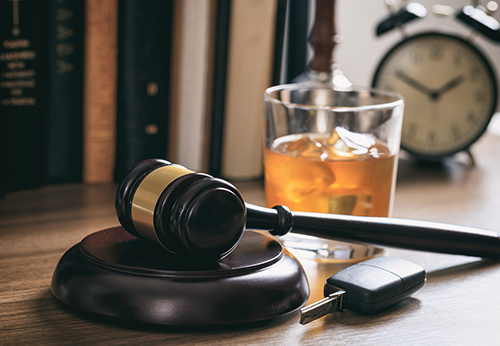Once Someone Is Released From Police Custody, What Are The Most Important Steps To Take After Being Charged With DWI?
 After being charged with DWI, the first thing you should do is hire a lawyer. Things are going to happen fairly quickly. Talk to that lawyer about getting an occupational license. If you’ve refused to take the breath or blood test, there may be an administrative law review over whether you keep your driver’s license or not. So, the first thing you should do is hire a lawyer and follow that lawyer’s advice.
After being charged with DWI, the first thing you should do is hire a lawyer. Things are going to happen fairly quickly. Talk to that lawyer about getting an occupational license. If you’ve refused to take the breath or blood test, there may be an administrative law review over whether you keep your driver’s license or not. So, the first thing you should do is hire a lawyer and follow that lawyer’s advice.
Do I Really Need a Criminal Defense Attorney If I Plan to Plead Guilty to My DWI Charge?
Yes, you still need a defense attorney, even if you plan to plead guilty to DWI. Pleading guilty exposes you to a whole range of punishment. If you have a criminal defense attorney, they can help minimize some of those consequences. On your first DWI, even with no prior legal trouble in your life, before, you can face up to six months in jail and a fine of up to $2,000, not to mention a stain on your record.
If for nothing else, you want a criminal defense attorney to look at the case to see if there is a defense you can make or if they’ve charged you improperly. Secondly, you want a criminal defense attorney to help minimize the impact of pleading guilty. Most people who hire defense attorneys still end up pleading guilty or no contest to a charge like this, but they have the benefit of someone who understands the system helping to minimize the consequences.
If I Can’t Remember the Details of My DWI Arrest, Will That Hurt My Case? Do I Still Have a Case?
The state is going to build its case around a couple of things:
- Testimony of the officer.
- Any drug test or alcohol test results.
- Available videotape.
Probably the most important piece of evidence is going to be the roadside tape of what’s going on at the stop. If you are asked to take the Breathalyzer test at the station, there will be tape, as well as of you standing there in the station for long periods of time while they work through that part of the process. This videotape evidence is really what makes or breaks a DWI case.
What Are Some Potential Defenses to DWI Charges in Texas?
Building a defense for DWI is kind of a wide-open. The factual defenses are “I didn’t have anything to drink” or “I didn’t have enough to drink to cause impact to my mental or physical faculties”. I remember a case where a client had some health issues that cause him to stumble when he walked; it was just a feature of his life. He had nothing to do with alcohol. That’s the kind of factual defense you can build.
Another argument is law enforcement can’t produce evidence that puts you behind the wheel of a vehicle. Were you driving on a public road or highway?
Lastly, the other defenses are more procedural defenses like the officer didn’t have probable cause to stop you in the first place. To build these defenses, it is important to not volunteer information at the stop or consent to searches or tests. If it turns out later the officer didn’t have probable cause to stop you, you can get that suppressed, possibly undoing their case.
Ultimately, your defense is going to revolve around one key fact that people often forget. Every criminal case is the state’s case, and the state is the only party in the room that has something to prove. If they can’t meet their burden of proof, their case doesn’t succeed. People need to remember that important part of our constitution. You the right to not say anything and the state has the obligation to provide evidence if they want to punish you.
In Texas, What is a DWI Non-Disclosures? Does Everyone Have a Right to One?
Right now, in Texas, DWI non-disclosures are very difficult to get and virtually impossible if you’ve ever had any other criminal case. If you were caught shoplifting when you were 17, that can keep you from being eligible for a non-disclosure. Each case is unique.
There is a section in the Texas government code that deals specifically with nondisclosures in DWI and alcohol or drug related cases. Usually, you must wait two years after you complete your probation before applying. They are more difficult to come by than they are for other kinds of offenses usually.
For more information on DWI Law in Texas, an initial consultation is your next best step. Get the information and legal answers you are seeking by calling (940) 440-5250 today.

Call Now To Schedule A Consultation
(940) 440-5250

